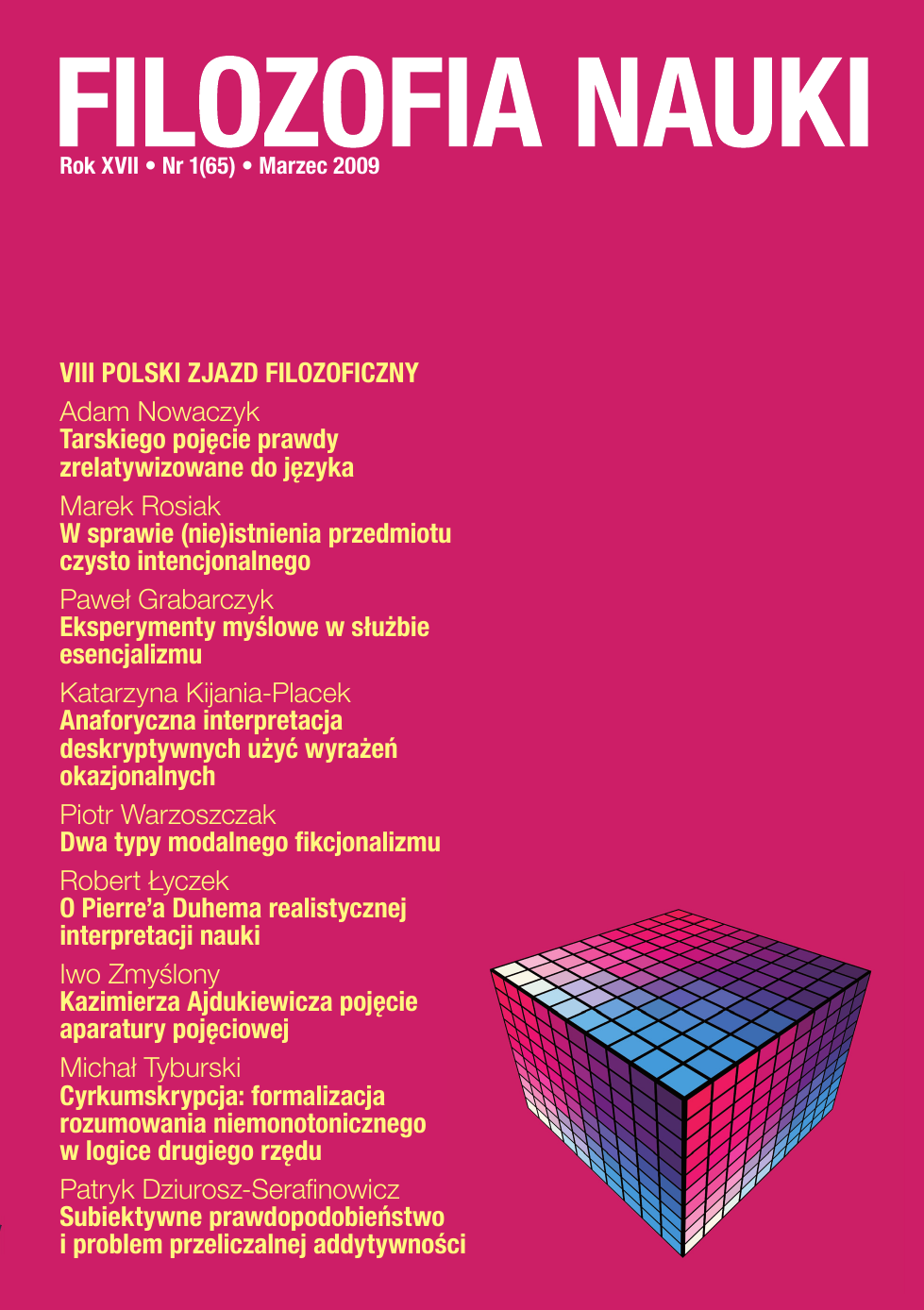Dwa typy modalnego fikcjonalizmu
Słowa kluczowe:
modal fictionalism, possible worlds, metaphysics of modalityAbstrakt
The main aim of the article is a comparison of two types of modal fictionalism (which is, to put it roughly, the antirealist view concerning the existence of possible worlds). The most popular version of modal fictionalism, proposed by Gideon Rosen, is compared with the modal fictionalism based on Stephen Yablo's ideas concerning object fictionalism. Both views aim to: (i) deliver an interpretation of existential quantifiers ranging over possible worlds, according to which quantifying over possible worlds does not imply ontological commitments to possible worlds; (ii) give an analysis of modality. The distinctive feature of the former view is an account of all sentences with existential quantification ranging over possible worlds as elliptical versions of sentences of the form "According to fiction of plurality of worlds, there is a world, in which...". The modal fictionalist presupposes that the occurrence of the story prefix "According to such and such fiction" makes all quantifiers in its range uncommittal ones. The latter view consists in taking sentences quantifying over possible worlds as uttered in make-believe spirit, where the speaker pretends that there are possible worlds and hence does not commit herself to the existence of possible worlds. Important feature of this view is that its proponent presupposes that there is some kind of dependence between that what modal facts there are and what is pretended in the game of make-believe for possible worlds discourse. The first view lacks this feature. I argue that if one supposes that some of our ordinary modal statements, e.g. "This car could have had different colour than it actually has," provide information about features of objects they are about, then Rosen's version of modal fictionalism faces the problem of explaining how modal fictionalist's analysis of modality preserves this kind of information about objects. The proponent of the latter version has tools to explain how her analysis preserves those bits of information about objects. I conclude that this could be treated as a reason of preferring Yablo's version of modal fictionalism.Pobrania
Opublikowane
2009-03-01
Jak cytować
Warzoszczak, P. (2009). Dwa typy modalnego fikcjonalizmu. Filozofia Nauki, 17(1), 41–67. Pobrano z https://www.fn.uw.edu.pl/index.php/fn/article/view/559
Numer
Dział
Artykuły















 Filozofia Nauki | ISSN 1230-6894 | e-ISSN 2657-5868
Filozofia Nauki | ISSN 1230-6894 | e-ISSN 2657-5868